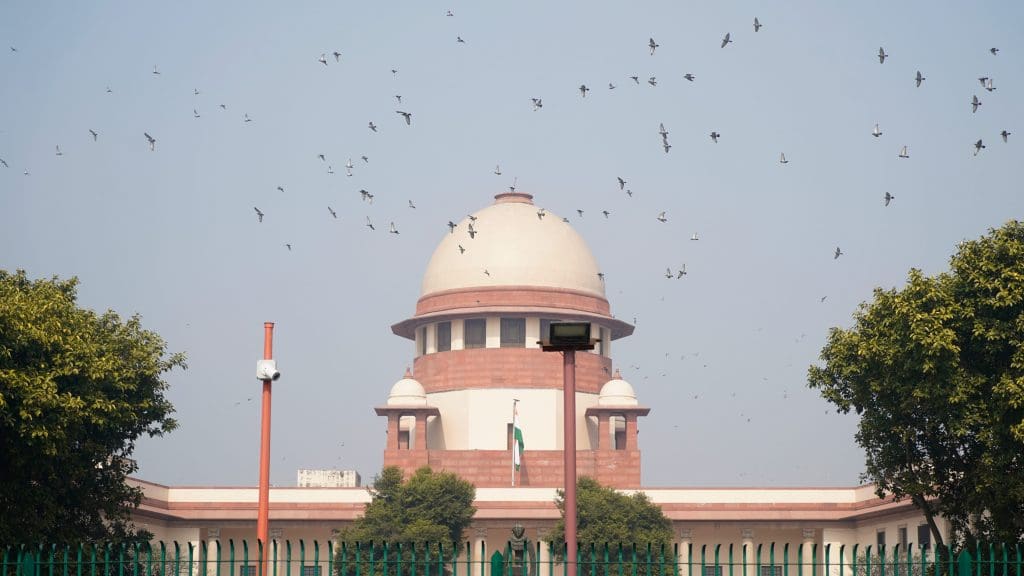
The Supreme Court Constitution Bench has by 3:2 majority upheld the validity of the 103rd Constitutional Amendment which introduced 10% reservation for Economically Weaker Sections (EWS) in education and government jobs.
While three judges of the five judge bench of Supreme Court of India uphold reservations for Economically Weaker Sections (EWS), two judges including CJI dissent on the exclusion of SCs/STs from the 10% EWS quota.
There are four judgements in the case. One judgment is by Justice Dinesh Maheshwari and second judgment is by Justice Bela Trivedi. Third judgment has been passed by Justice JB Pardiwala and the dissenting judgment is by Justice Ravindra Bhat and CJI UU Lalit.
As per the majority view of, reservation structured singularly on economic criteria does not violate the basic structure of the Constitution.
It has also held that breach of 50% ceiling limit by EWS reservation does not violate basic structure, Live Law reported.
“Reservation is an instrument of affirmative action by State so as to ensure all inclusive approach. It is an instrument not only for inclusion of socially and educationally backward classes…Reservations for EWS does not violate basic structure on account of 50% ceiling limit because ceiling limit because ceiling limit is not inflexible,” read the judgment by Justice Maheshwari.
In his dissenting judgment, Justice S Ravindra Bhat said that by excluding the poor among SC/ST/OBC from economically backward classes, the 103rd Amendment practices constitutionally prohibited forms of discrimination.
The top court had on 27 September reserved the verdict on the legal question of whether the EWS quota violated the basic structure of the Constitution.
The marathon hearing had lasted for six-and-half-day.
The Lok Sabha and the Rajya Sabha cleared the bill on January 8 and 9 in 2019 respectively and it was then signed by then President Ram Nath Kovind. The EWS quota is over and above the existing 50 per cent reservation to SCs, STs, and Other Backward Classes (OBCs).
Academician Mohan Gopal had opened the arguments in the case before the bench on 13 September and opposed the EWS quota amendment by terming it as “deceitful and a backdoor attempt” to destroy the concept of reservation, PTI reported.
Tamil Nadu had also opposed the EWS quota, saying the economic criteria cannot be the basis for classification and the top court will have to revisit the Indira Sawhney (Mandal) judgement if it decides to uphold this reservation.
On the other hand, the then attorney general and the solicitor general had vehemently defended the amendment, saying the reservation provided under it was different and had been given without disturbing the 50 per cent quota meant for the socially and economically backward classes (SEBC), the news agency reported.



